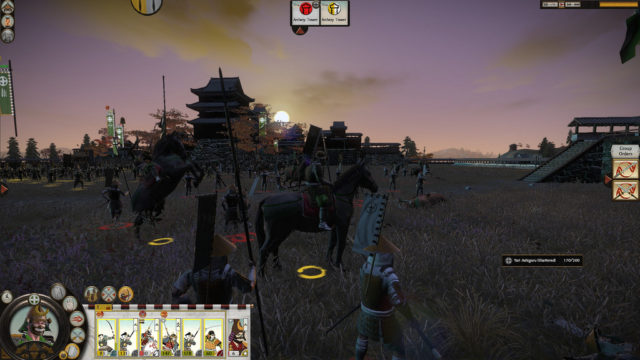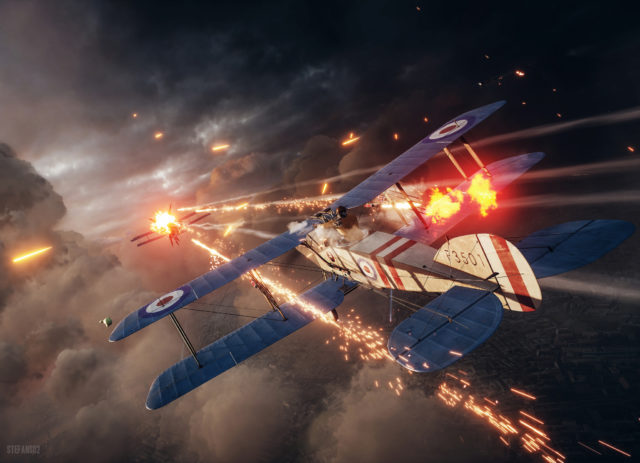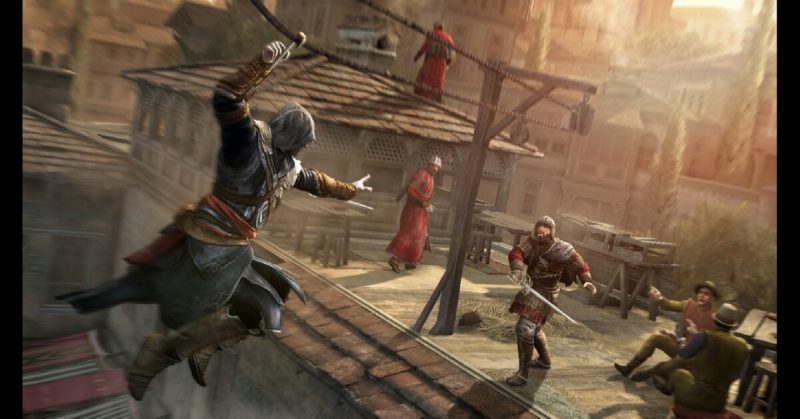The modern games market has never been more diverse, offering a huge variety of titles in a wide range of genres. Many games offer pure escapism of fantasy or science-fiction, while others draw their inspiration from real historical events.
From the Roman conquest of Europe to WWII, battles and warfare have been the stimulus for some of the most successful titles. Here are five popular video games from recent years that owe their success to the wars of the past.
Assassin’s Creed
Although players and critics criticized later installments of the franchise, the Assassin’s Creed games have been immensely successful, earning themselves an important place in gaming history.
The games cover many different time periods and weave fantasy and science-fiction into most of the plots. Several entries in the series – the original game in particular – are heavily grounded in historical conflicts.
The first game in the franchise is based on events from the Third Crusade, with a mission involving the Battle of Arsuf and appearances by some historical figures. Templar Knights feature as the antagonists for much of the game and the mysterious order of assassins have some basis in historical fact.
This game and the series it kicked off owe a great deal to the wars of the past.
Total War Series

The Total War games span multiple historical and cultural periods and have become a gold standard for turn-based strategy titles. Several games in the series received criticism for bugs and performance issues; Rome II suffered a particularly messy launch. However, the franchise as a whole has been well received.
The most recent edition, Total War: Warhammer, moved into the high fantasy genre, but the majority of the games focus on real historical conflicts.
Players can experience the Napoleonic Wars, the Mongol invasion of Europe, many Crusades, the Boshin War in 19th Century Japan and much more. It is their attention to historical accuracy and detail that makes the Total War games so compelling, putting this series at the forefront of modern strategy gaming.
Age Of Empires III
Although the only new entries in the series in the last few years have been expansions to previously released titles, the Age of Empires games have enjoyed considerable critical and commercial success.
This has been attributed to a number of factors, including the reliance on real events and historical wars as their foundation. Age of Empires III is a particularly good example of this, with the game exploring the colonization of America by European factions across several centuries.
It is a nuanced and historically accurate approach to everything from weaponry and technological advancement to Native American cultures and trade. Age of Empires III owes its accolades, awards and financial success to the close attention developers paid to the real military conflicts of early American history.
Battlefield 1

In recent years there has been an increasing fatigue around the futuristic warfare of the Call of Duty series. Evidence of this was the backlash against the Infinite Warfare trailer in 2016.
Many in the gaming community were looking for first person shooters with a basis in real historical combat. That is exactly what they got with the critically acclaimed Battlefield 1. With stunning graphics and outstanding gameplay, this title’s success can be traced back to a number of factors, but perhaps foremost among them is its setting in WWI.
Technology, the weaponry, and locations are all historically accurate, allowing players to become immersed in a gritty and realistic recreation of the war.
Call of Duty 1 – 3
In recent years this series has moved progressively away from its historical roots, focusing on modern to futuristic warfare instead.
The original three Call of Duty games had their basis in WWII. They enabled players to experience dramatic recreations of historical events and battles. The games met with critical and financial success and received multiple awards, putting this franchise at the forefront of the first person shooter genre.
Over the years the shift towards a setting that borders on science-fiction has been poorly received, underlining the original trilogy’s popularity. Basing the games on real events and historical warfare has proven to be a successful formula and one that is still popular today with other franchises.
